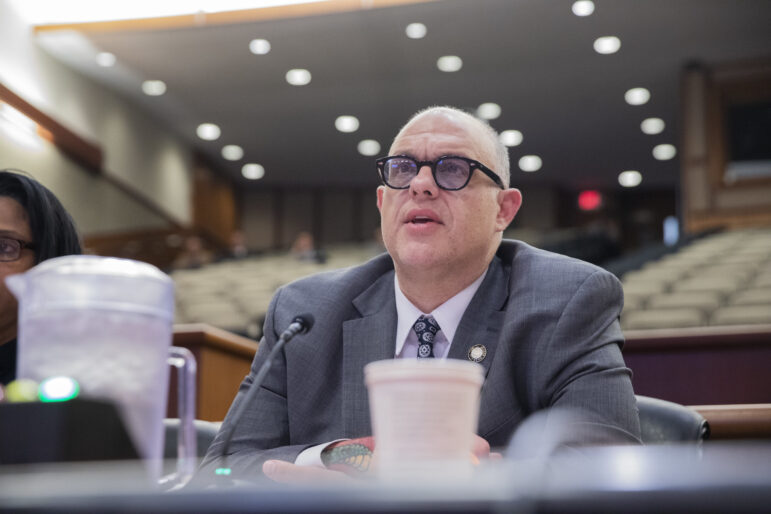Waging a Living, Directed by Roger Weisberg. Airs on WNET 13 Tues., Aug. 29 at 10 p.m.
Recent books about Americans who work full-time yet live in or near poverty, from Barbara Ehrenreich’s “Nickel and Dimed” to Beth Shulman’s “The Betrayal of Work” to Jason DeParle’s “American Dream,” have won an appreciative audience in bookstores and coffee shops across blue-state America but failed to mobilize public opinion, let alone move the policy debate. As frustration has built with this state of affairs, a debate has raged within the community of researchers and advocates on this issue about how best to make the case: go for the heart with tales of personal misfortune, or appeal to the brain by honing in on the failings of a system that often holds back even those who work hard and play by the rules? Critics of the first approach maintain that the personal focus actually distances the audience from the struggling individual, whose woes sometimes can be ascribed to poor personal choices or bad luck; backers of that approach essentially counter that arguments about earning are not particularly likely to trigger public outrage.
“Waging a Living,” a PBS documentary about four full-time workers who struggle to meet expenses through low-paying jobs, tells a compelling story by splitting the difference. Filmmaker Roger Weisberg offers numerous figurative kicks in the gut: certified nursing assistant Jean Reynolds, 51, cares for her children and grandchildren, including an adult daughter with cancer who can’t work, and 36 year-old single mother of five Barbara Brooks tries to get ahead despite suffering abuse and impoverishment as a child. Weisberg focuses in on how children suffer in the homes and lives of the working poor: Brooks’s kindergarten-age son has a respiratory condition she can’t afford to properly treat, while the son of 41 year-old waitress Mary Venittelli throws violent temper tantrums. Jerry Longoria, a 42 year-old security guard living in a San Francisco SRO who — unlike the absent ex-husbands of the other three workers — regularly sends child support money to his kids, feels guilt and shame over his nine-year absence from their lives.
It’s the systemic critique, however, that Weisberg makes with skill and subtlety — and that ultimately stands as the more compelling point. Reynolds and Longoria both get involved in union activism, and show remarkable qualities of leadership in doing so — but neither ultimately benefits, as she is already at the maximum pay level of the nursing home where she works, and he soon loses his job and has to take a lower-paying position. The story of Brooks, whose relentless push for self-improvement impels her to balance work, parenting, and adult education, is more damning still. When her hourly wage increases from $8.25 to $11, she finds that her additional $450 in monthly earnings means that she receives $600 less per month in government assistance through various programs that provide health care, food stamps and housing subsidies. Tears running down her face, she laments that her life seems to follow a pattern of “hustling backwards.”
“Waging a Living” offers no explicit solutions, but the experiences of its protagonists comport with expert opinion. Education is one answer: Brooks ultimately completes her associate’s degree and lands a $15 per hour job, but again sees her public support disappear as her wages rise. Still undaunted, she returns to school seeking a bachelor’s degree, as an on-screen caption notes that bachelor’s holders earn nearly twice as much per year as those with high-school diplomas only. For some among the working poor, however, obtaining more education is not a realistic option. In middle age, with seven dependents and a full-time job, Jean Reynolds has neither time nor money to go back to school. Though “not the most devout Catholic,” in her words, she goes weekly to pray at the shrine of St. Jude, patron saint of the impossible, because “my life is impossible.” Divine intervention isn’t the likely answer for her. But enlightened public policies that truly reward work might be. [08/28/06]








